Obstacle course ideas for all ages, indoors or outdoors with little to no prep. Plus learn obstacle course benefits and get a list of activities to make your own!
Climbing, crashing, swinging, crawling… There’s a reason most kids love movements like these from a young age and will actively seek them out.
You can combine all these activities by setting up an easy, low prep obstacle course! As an occupational therapist and mom it is one of my favorite ways to give kids sensory input, work on motor skills, following directions, and to keep them busy!
The options are really endless with obstacle courses: indoors, outdoors, DIY, pieced together with items you already have.
We’ve got a lot of simple obstacle course ideas for you, but first let’s talk about why you should bother setting one up in the first place…
Obstacle Course Benefits For Kids
The skills you can target through an obstacle course really are endless. But generally, using an obstacle course will build the following developmental skills whether your child is a toddler, preschooler, or school-aged kid:
- Spatial awareness
- Coordination- both fine and gross motor skills. Learn more about how to use an obstacle to build handwriting skills here!
- Direction-following
- Balance
- Depth perception
- Focus, calming, and self regulation
- Creativity
- Building muscle strength
- Vestibular processing
- Proprioceptive processing
- Tactile processing
- Visual processing
Obstacle courses, even simple ones with hardly any preparation required, target 4 main sensory processing areas. This is good news for ALL kids, from toddlers to older kids.
It’s especially great for sensory seekers, sensory avoiders, or those with low registration of sensory input.
As an OT, it’s pretty close to the perfect activity for most kids in a therapy setting. And as a mom, it translates easily to the home with any kid, with a diagnosis or not. It doesn’t get much better than that!
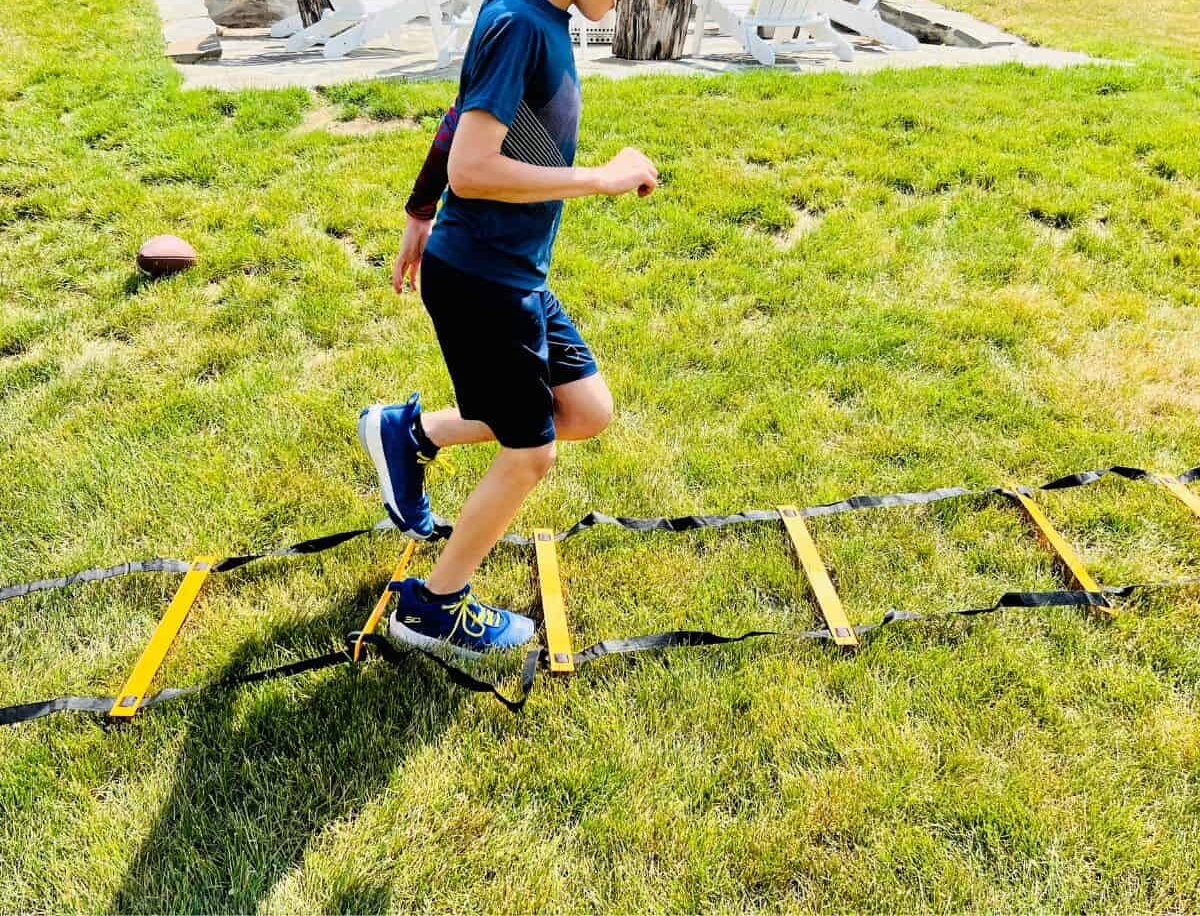
How to Make an Obstacle Course for Your Child-4,5,6,7 years Old or Older
It might seem intimidating to come up with an obstacle course for your child, but the truth is, you don’t need to overcomplicate or overthink it.
Kids are really good at showing us what their sensory systems need through their behavior and actions.
They can often be our biggest teachers when it comes to understanding their needs, if we just observe them and do a bit of detective work toward determining what those actions mean.
This is one of the higher level strategies I teach in my RISE with Sensory online program, (get a seat in our free workshop here), that you can use too with your sensory kid.
For example, if your child is constantly climbing the furniture, and it seems like they can’t get enough, they may be seeking vestibular and proprioceptive input.
If this is the case, picking activities that give your child rich vestibular and proprioceptive feedback would be great to work into an obstacle course. I’ll show you how to select those from an idea bank here in a bit.
Sound easy enough? I promise it can be! So let’s get started making an obstacle course for your child.
Mix and Match DIY Obstacle Course Idea Bank
The movement, coordination, and navigating the environment all make obstacle courses a highly sensory experience.
With that in mind, a simple way to make an obstacle course for yourself is to pick and choose a few activities from each sensory area to try with your child.
Listed below are some ideas to try. And don’t worry, we’ll also show you a few sample obstacle courses to use with your child.
What you’re doing here is a simplified way of making a sensory diet, in fact, obstacle courses are like mini sensory diets, and when used correctly can offer similar benefits of regulation, focus, and calming.
Proprioceptive Obstacle Course Ideas
- Animal Walks
- Climbing over items like hurdles
- Going through a tunnel
- 1 or 2-legged hops
- Crawling
- Carrying an item in arms or backpack (heavy is better)
- Jumping jacks
- Jumping on a trampoline
- Crashing onto a cushion or mat
- Hold hands with a partner or complete as a 3-legged-race, or wheel-barrow
- Use “stepping stones” for foot targets
- Rope climb or tug-of-war if more than 1 child
- Monkey bars
- Rock wall or jungle gym
- Hopscotch
- Jump rope
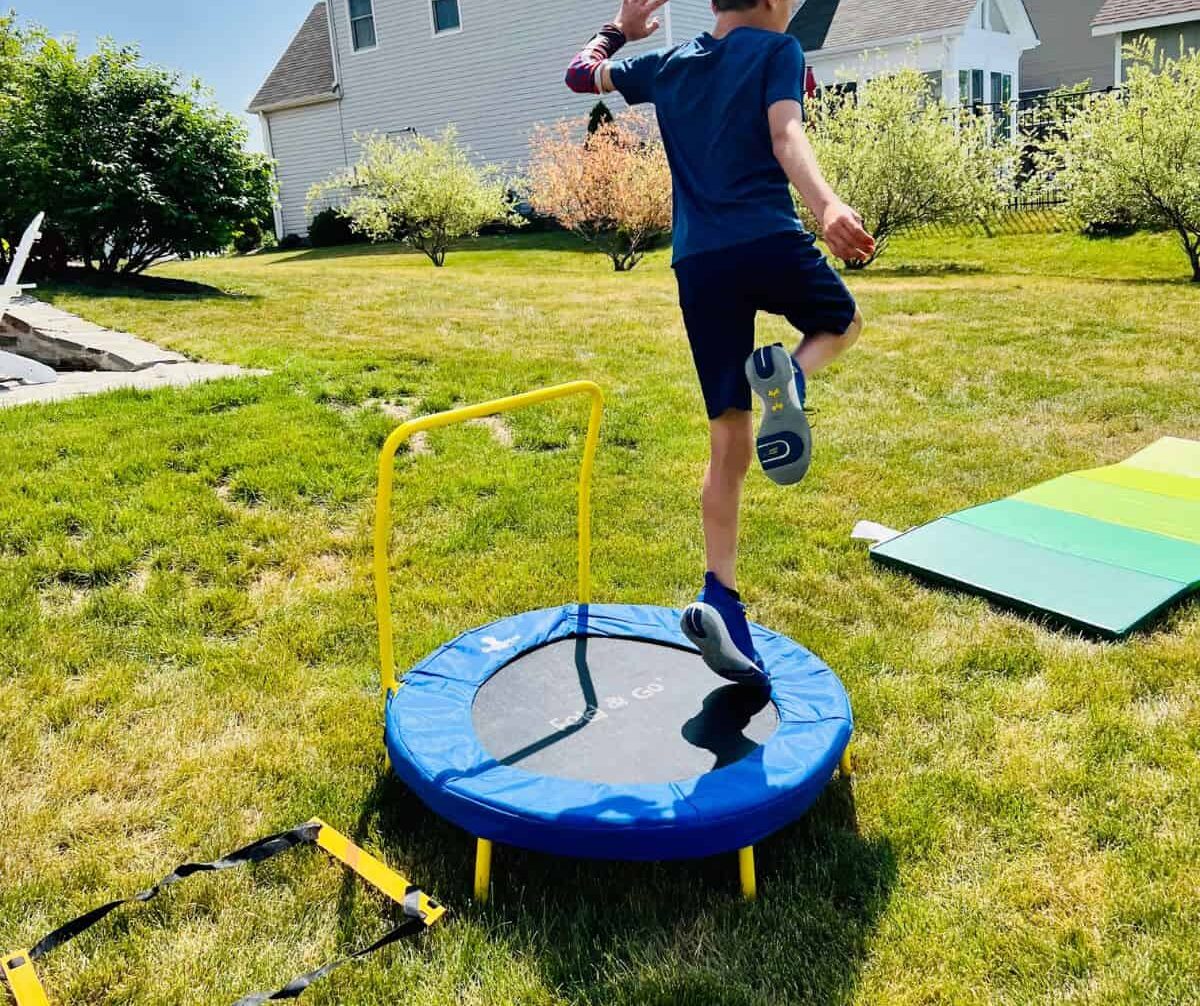
Vestibular Obstacle Course Ideas
- Change up speed with fast vs. slow. Can use a timer for added challenges.
- Complete course forward or backward
- Walk across a balance beam
- Hang upside down
- Spin
- Swing
- Complete a maze with directional changes
- Zip line
- Use a bike, scooter, or scooter board
- Somersault or cartwheel
- Ducking under or avoiding items like string or web
- Log rolling
- Hula hoop
Tactile Obstacle Course Ideas
- Complete obstacle course barefoot
- Use water, mud, grass, gravel, paving stones, etc. to change texture of the course
- Incorporate a sensory bin as one of the obstacle activities and have the child find hidden item in the bin.
- Ball pit
- Throw or catch a ball
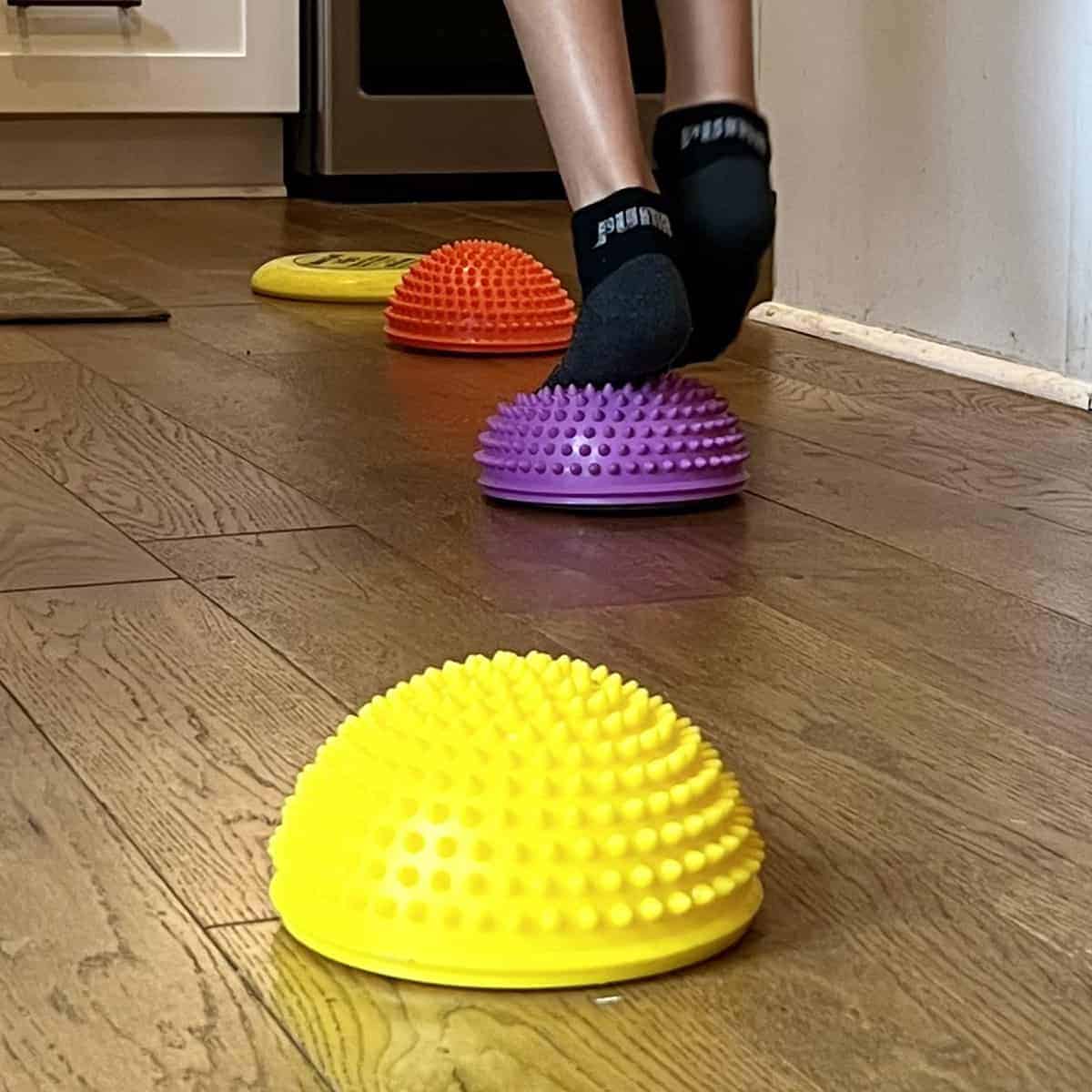
Vision Obstacle Course Ideas
- I-spy a certain color, shape, etc.
- Write the directions for the course out, and have your child follow them
- Build a tower of blocks (give instructions like “use 2 blue blocks, 1 red,” etc)
- Dim the lights and have child complete course with flashlight or in the dark
- Memorize the course and ask the child “what comes after the trampoline?”
- Use numbered or colored stepping stones
- Safely blindfold person and have another child “direct” them
- Hide a toy or item and have child find it as one of the steps
- Bowling, bean bag toss, ring toss, or other hand-eye tasks
- Frisbee throw
- Bow and arrow
- Solve a visual puzzle
Once you have selected a few activities, you’ll want to make an order. Then, adding a certain number of repetitions makes it even more effective.
For example, “First walk across the log, then jump 4 times like a frog.”
What makes these activities beneficial is that instead of a free-for-all, you’re adding specific boundaries and guidelines to make it an actual obstacle course, which in turn, brings focus and attention.
By adding order, turn taking, concept of time, and direction following, you are building valuable cognitive skills, while your child has no idea, because all they see is FUN!
Indoor Obstacle Course Ideas
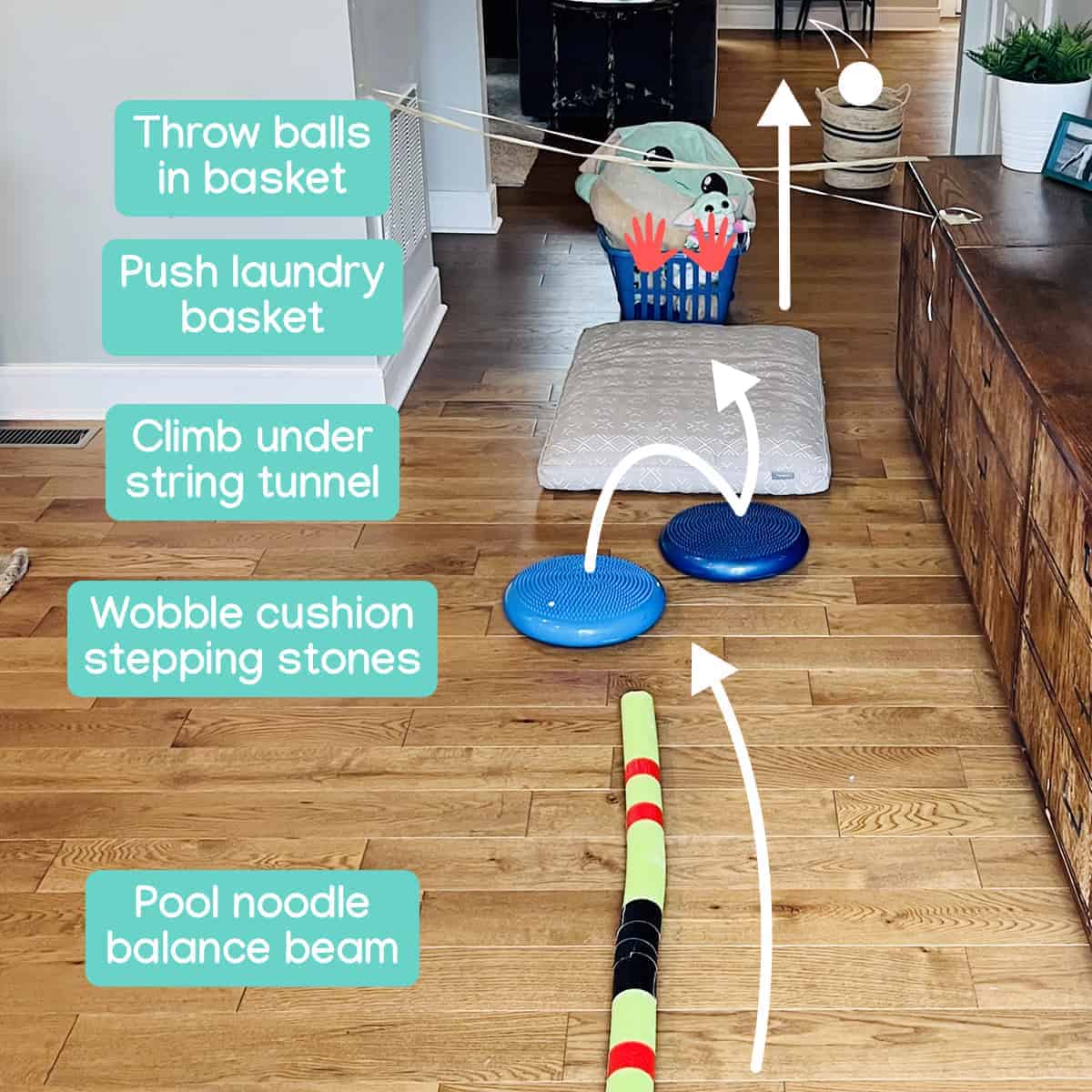
If you haven’t noticed, the repeating theme here is to not overcomplicate things. Believe it or not, there are likely tons of opportunities for a great obstacle course in your own home that you might not have considered before.
Live in a split level house or apartment complex? Make marching up sets of stairs part of your course. With older kids, try skipping every other step, or maybe jump off the last two.
Couch cushions, kitchen chairs, hallways, laundry baskets, and mattresses are all fair game when it comes to designing your indoor obstacle course.
Collaborating with your child about which activities or ideas they have for part of the course is also a great way to get them involved.
Making an indoor course is a great way to bring play inside, avoid bad weather, or otherwise give your kids something to do that is active, fun and safe. There is no need for a huge amount of space, either.
Like I mentioned before, the best way to make an easy, DIY course with minimal prep is to channel what your kids are already trying to do, and make it purposeful and directed.
Instead of kids bouncing off the walls aimlessly, turn that energy into an obstacle course and watch them go from wild to focused and calm. It’s a win-win!
Outdoor Obstacle Course Ideas
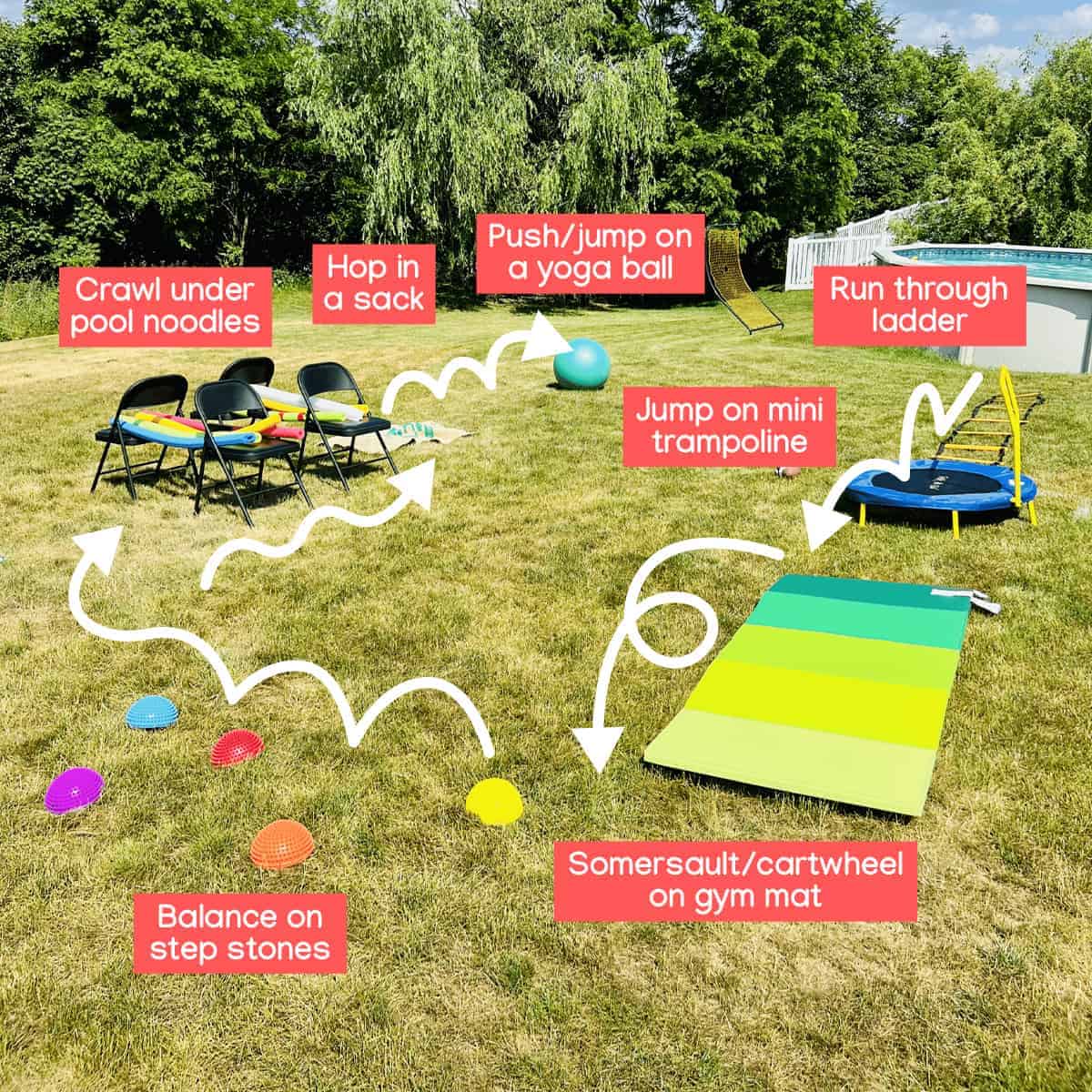
Making your own obstacle course outdoors might be even simpler than indoors, because so many parks, play spaces, and outdoor open areas have lots of activities just waiting to be made into an obstacle course.
Many playgrounds have equipment meant to provide rich sensory input to your child. Jungle gyms, see-saws, slides, and even splash pads offer incredible ways to mix it up and add variety to a course.
For a fun twist, try using glow sticks to mark a nighttime obstacle course. Use sidewalk chalk, your water table, or a sandbox for adding new elements to your course.
Having an obstacle course outdoors also introduces elements of weather, free nature play, and the possibility to engage with other kids, which is a great way to work on social skills while addressing sensory processing.
The moral of the story here is: Inside, outside, a lot of space, or a little… All of these options work for making an obstacle course you and your kids will enjoy.
Sample Obstacle Courses for Kids
If the idea of making your child their own obstacle course is still daunting, here are a few to try, with options for indoor or outdoor.
1.Indoor
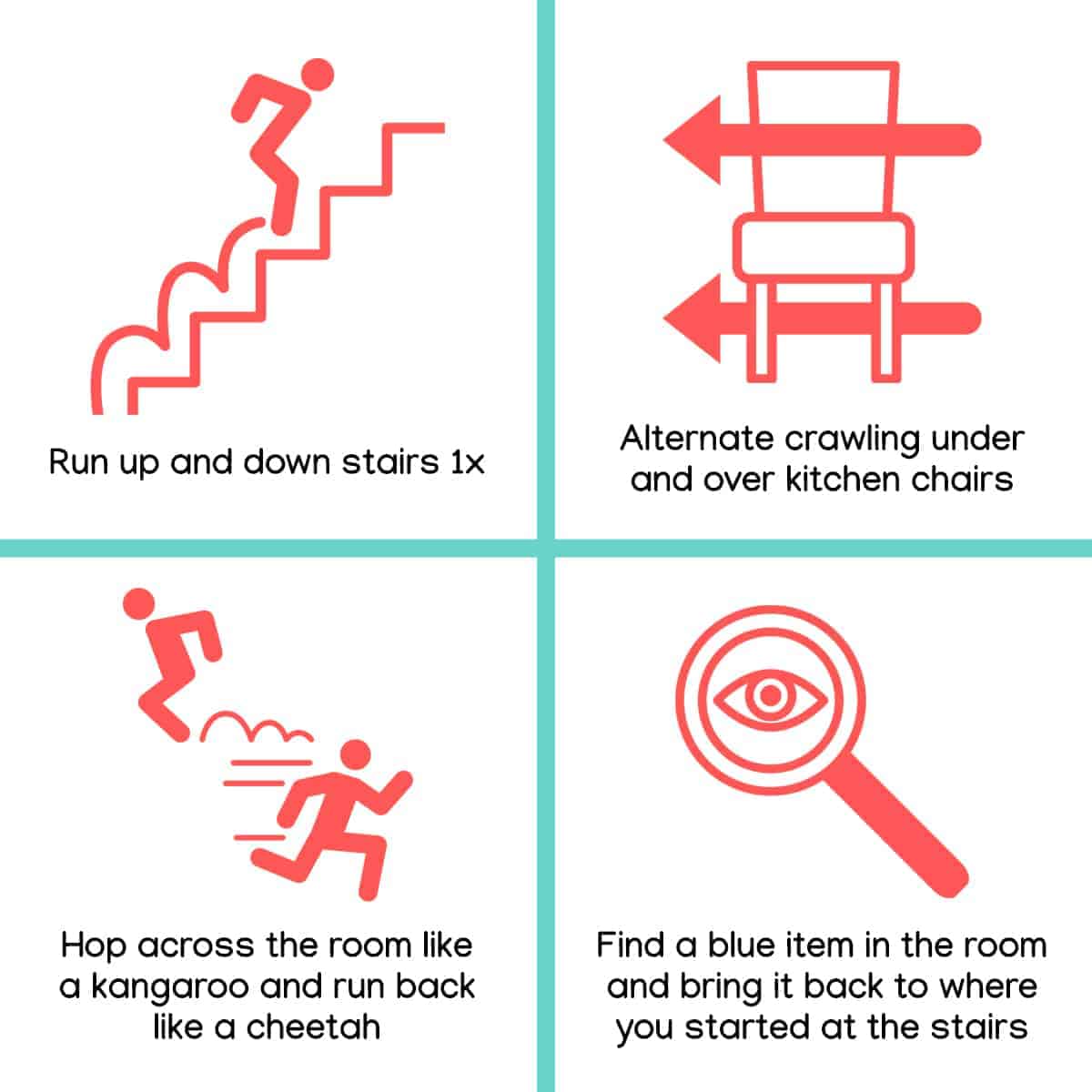
- Run up and down stairs 1x
- Alternate crawling under and over kitchen chairs
- Hop across the room like a kangaroo and run back like a cheetah
- Find a blue item in the room and bring it back to where you started at the stairs
2. Outdoor
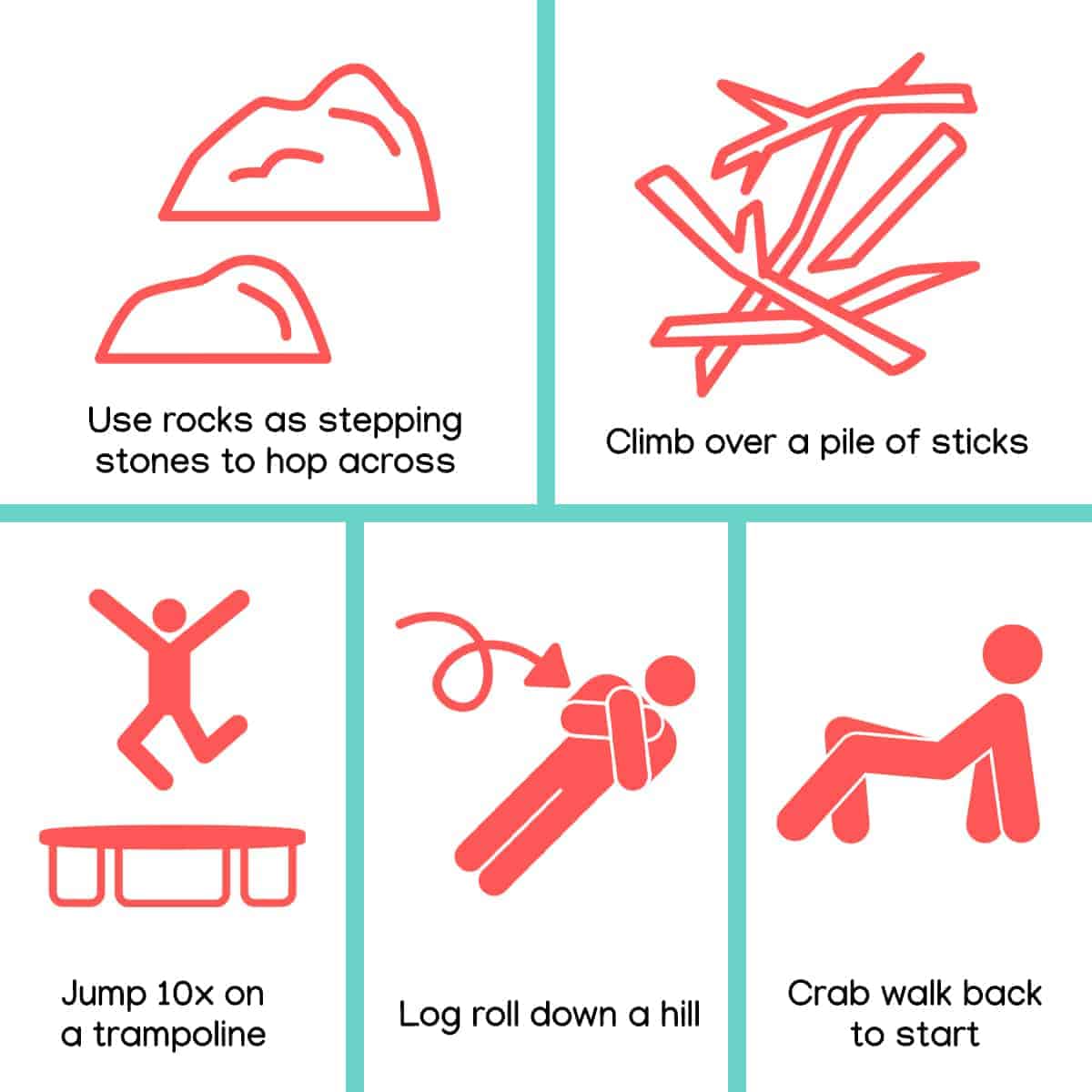
- Use rocks as stepping stones to hop across
- Climb over a pile of sticks
- Jump 10x on trampoline
- Log roll down hill
- Crab walk back to start
3. Indoor
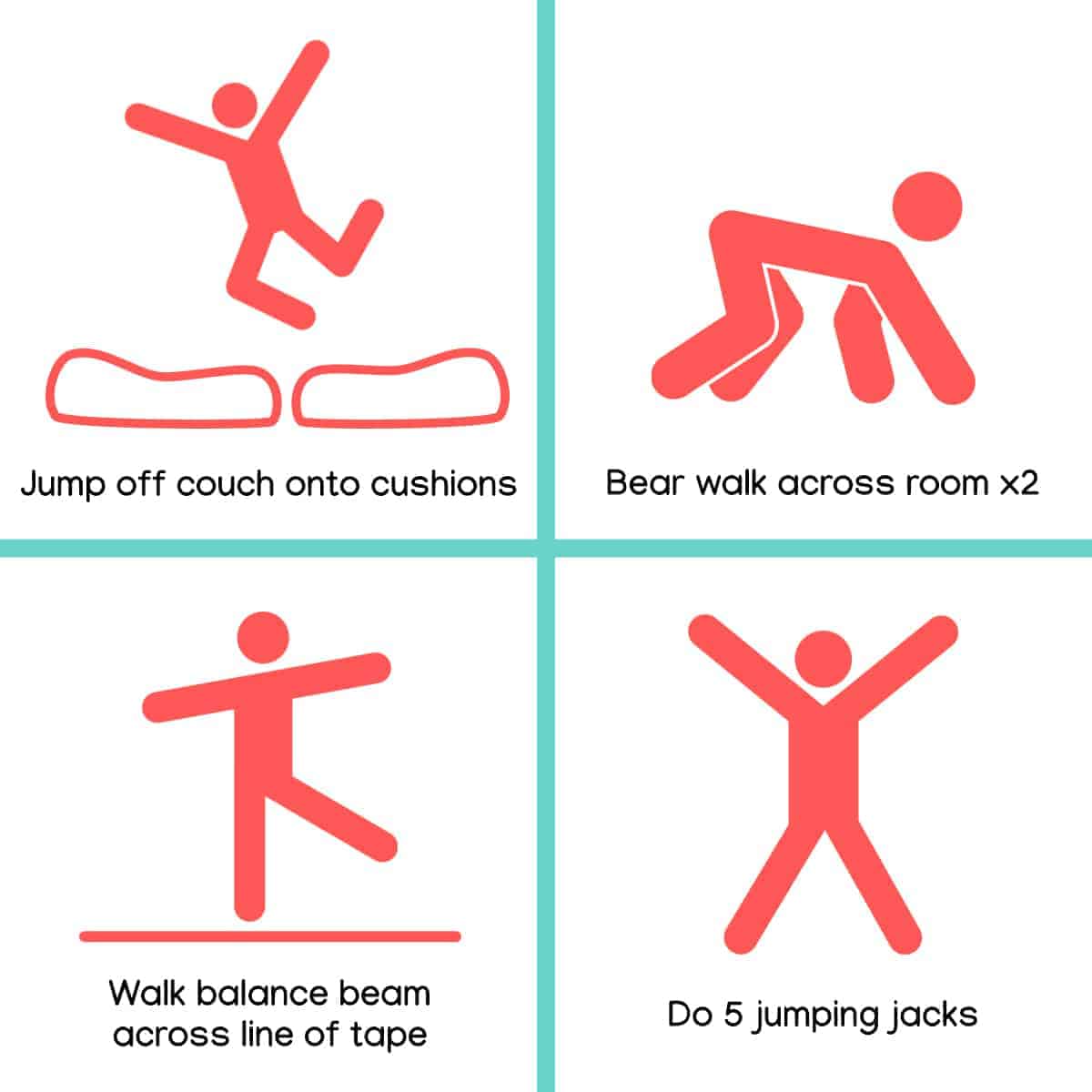
- Jump off couch onto cushions
- Bear walk across room x2
- Walk balance beam across line of tape
- Do 5 jumping jacks
4. Outdoor
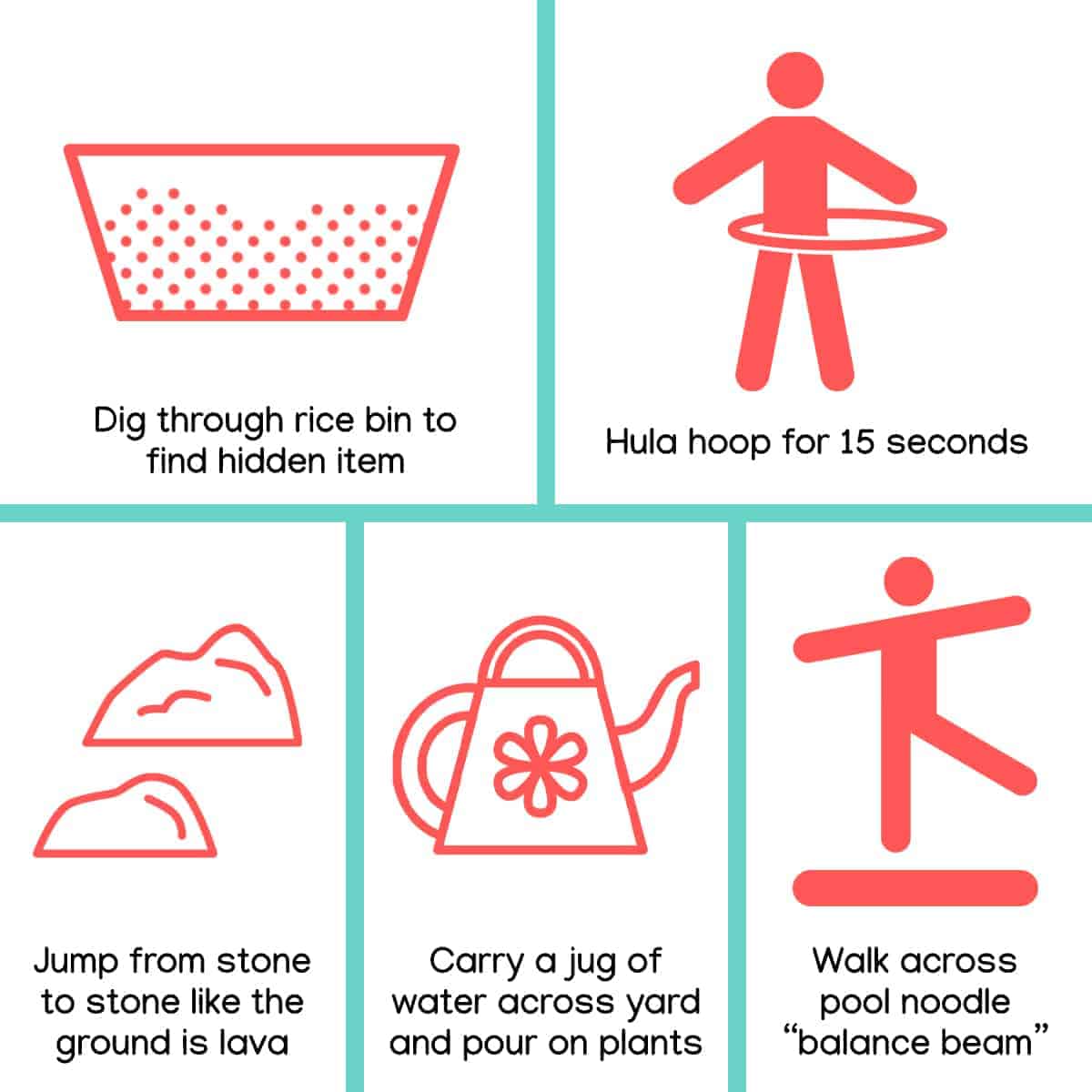
- Dig through rice bin to find hidden item
- Hula hoop for 15 seconds
- Jump from stone to stone like the ground is lava
- Carry a jug of water across yard and pour on plants
- Walk across pool noodle “balance beam”
Want More Sensory Activities?
There you have it; lots of new and creative obstacle course ideas to try with your kids, no matter what kind of space or setup you have.
If you love the idea of using sensory activities, but want more ideas, we’ve got you covered with our awesome free printable:
25 Sensory Activities that Calm and Focus!
Click the link and we’ll send it right over for free.
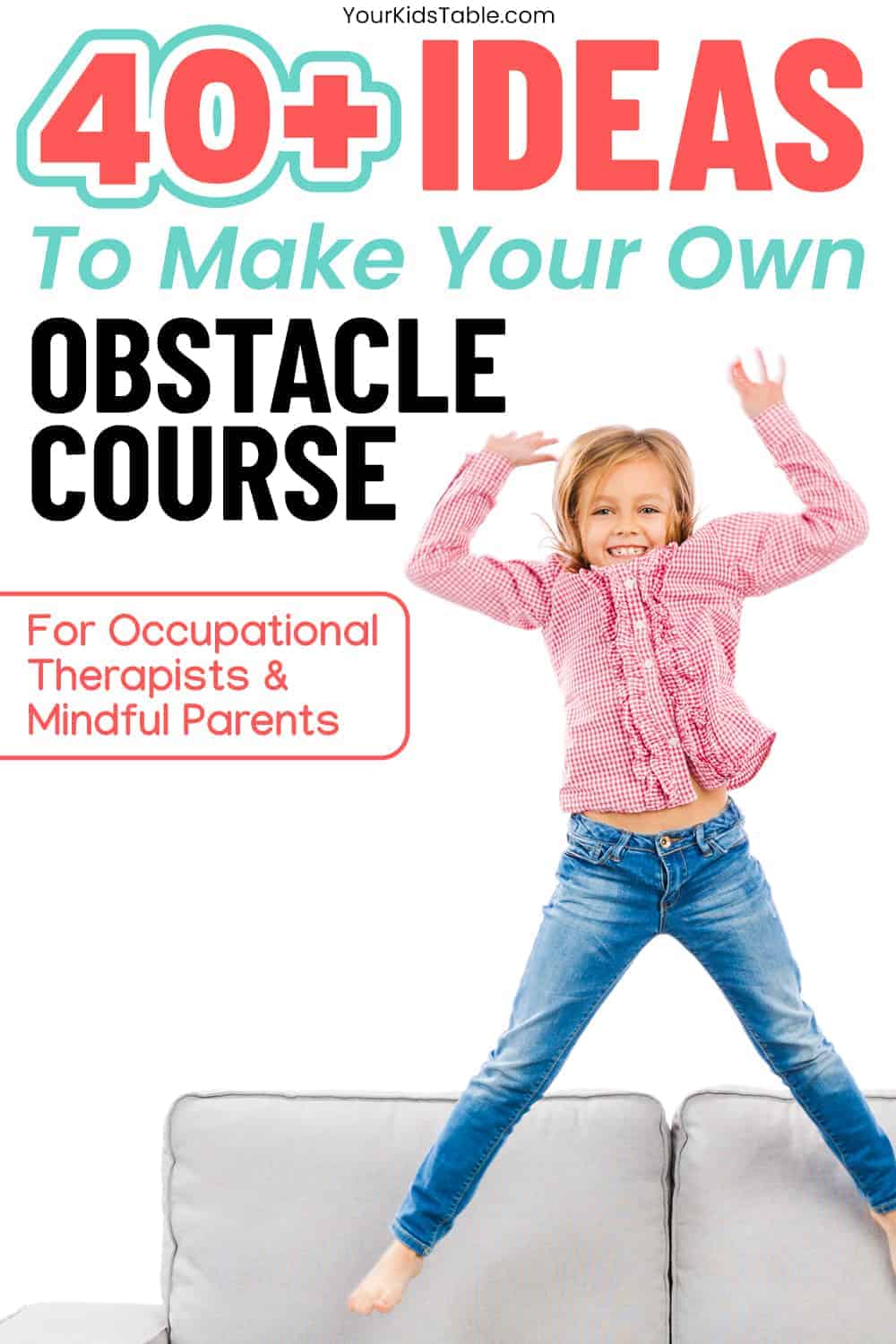
DID YOU PIN THIS?
More Movement Activities for Kids
10 Winter Sensory Occupational Activities
Epic Messy Play List that’s Sensory-filled, Inspiring and Easy!
17 Cool Summer Sensory Activities that Help Kids
Laura Mau is a licensed occupational therapist and member of the Your Kid’s Table team. She has over 8 years of clinical experience in helping families navigate complex feeding and eating, sensory processing, and reaching developmental milestones with their children. She currently practices in Colorado and has 2 young kids of her own.
Alisha Grogan is a licensed occupational therapist and founder of Your Kid’s Table. She has over 20 years experience with expertise in sensory processing and feeding development in babies, toddlers, and children. Alisha also has 3 boys of her own at home. Learn more about her here.
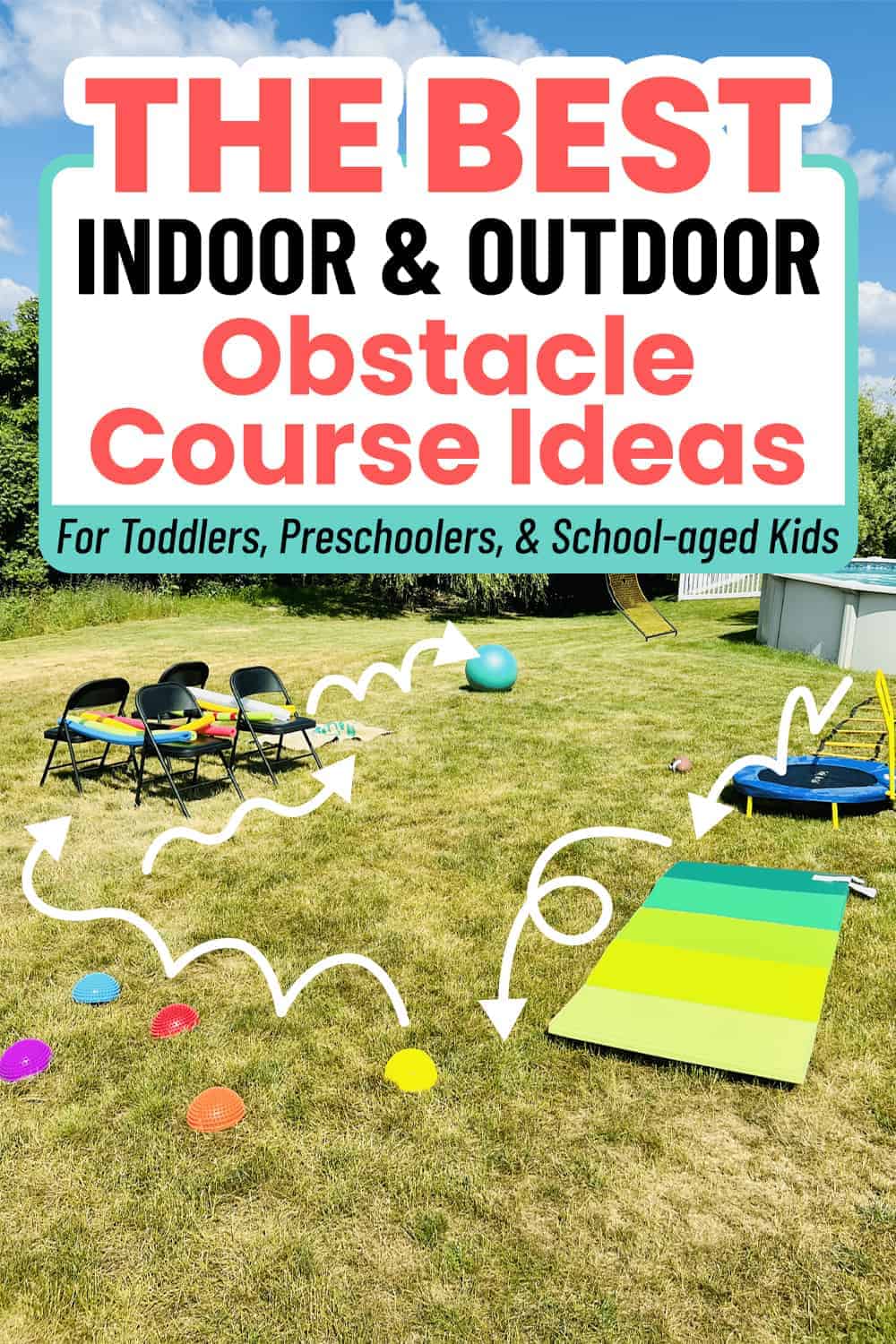

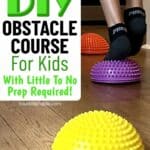
This is perfect for summer! I can’t wait to try some of these ideas!
Thank you Maria! We hope you have fun!
Best,
Laura, Your Kid’s Table team member
Love your ideas…thank you for the summer time reminder of things to do with my daughter and her friends as well as my Early Intervention kids I see! 😊
Thanks for reading, Jana! We hope you find these ideas fun and useful for both your own child and those you work with!
Best,
Laura, Your Kid’s Table team member